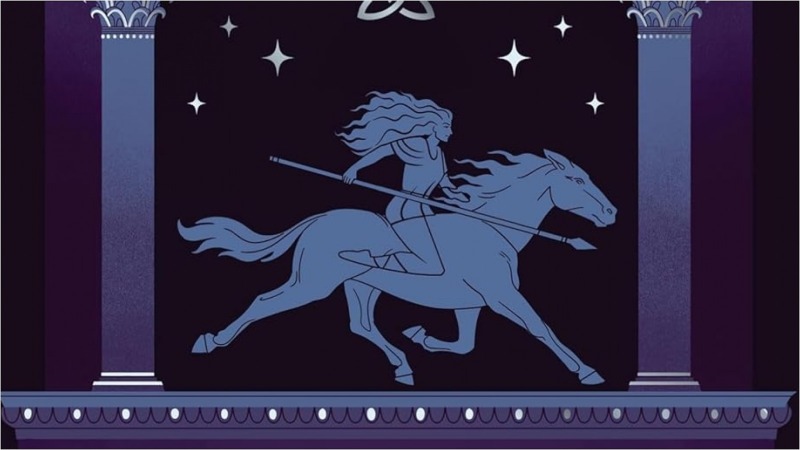With Boudicca’s Daughter, Elodie Harper Continues to Give the Women of the Ancient World Their Due

History is not often kind to women. Whether that’s because it simply hasn’t always been all that great to be a woman, historically speaking, or because history has predominantly been written by men is a question worthy of debate. But the answer is likely to be a little bit of both. For example, most people with a passing familiarity with British history have at least heard of the name Boudicca, the legendary Iceni warrior queen who led a failed uprising against the Roman army around 60 A.D. But while history records many of the specifics of this rebellion, from the Roman generals who quashed it to the cities that were sacked and burned, the life of the woman behind the legend is still largely a mystery. Author Elodie Harper aims to change all that with Boudicca’s Daughter, but not quite in the way you might expect.
If you’ve read her (excellent) Wolf Den trilogy, then you already know that Harper excels at writing stories about oft-ignored women who exist on the margins of history. and that skill is on full display here, spinning a tale of survival and tenacity out of the barest scraps of fact. Told from multiple perspectives, Boudicca’s Daughter follows Solina, the eldest child of the infamous warrior queen. The real Boudicca did, historically, have two daughters; the historian Tacitus recounts the story of their rape at the hands of Roman soldiers, the flashpoint that lit the fuse of the rebellion that followed. But he does not bother to record their names, and any other identifying details about who they were have long been lost to time. Boudicca’s Daughter accepts the challenge of filling in this gap, and Harper deftly weaves genuine historical details with educated speculation to create something that, although it is technically fiction, feels an awful lot like it could be fact.
When the story opens, the POV chapters are shared between Solina and her mother, known simply as Catia. Harper assumes, as do many historians, that the name “Boudicca” was most likely bestowed as a title, and switches between using both throughout the book depending on the context of the story in each chapter. A less interesting version of this book would have simply focused on the story’s most famous figure, but Harper is less concerned with Boudicca the warrior than she is with Catia the wife and mother. She and her husband—the Iceni king Prasutagus—have vastly different views when it comes to the tribe’s willingness to submit to Roman rule. She has a complicated and frequently contentious relationship with her children; Catia prefers her youngest daughter, Bellenia, while Solina is her father’s favorite and struggles to connect with her mother, who constantly pushes her husband towards war. When Prasutagus dies, Roman soldiers flog Catia and rape her daughters rather than acknowledge her claim to her husband’s lands, kicking off the rebellion that would eventually raze cities and claim 100,000 lives.
There’s a certain feel of tragedy to the book’s earliest sections—after all, it’s the part whose ending we already know. Despite early victories, Boudicca’s forces are vanquished by those of Roman legate Suetonius Paulinus, and the warrior queen takes her own life rather than submit. Solina, however, is captured, imprisoned, and ultimately taken to Rome by Paulinus, and that’s where the novel finds its surest and most interesting footing. What follows is a story of survival and sacrifice, as Solina finds herself used as Rome’s symbol of Britain’s defeat, much in the same way her trauma was previously exploited to rally Boudicca’s soldiers and war chiefs. Ultimately gifted as a slave to the notorious Emperor Nero and forced to serve his second wife, Poppea, she struggles to adapt to the new and dangerous world of Roman politics and the mercurial, frequently cruel and self-serving figures at its center.
-

-

-

-

-

-

-

-

-

-

-

-

-

-

-

-

-

-

-

-

-

-

-

-

-

-

-

-

-

-

-

-

-

-

-

-

-

-

-

-








































